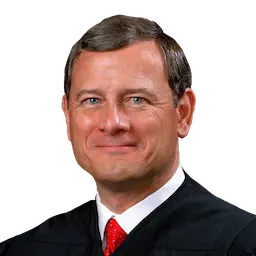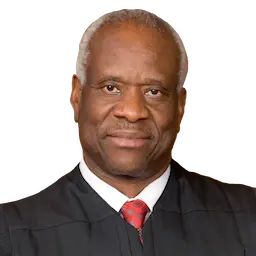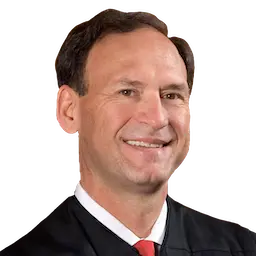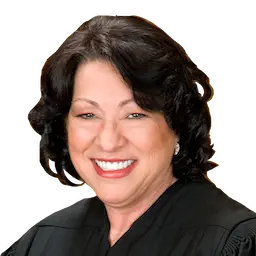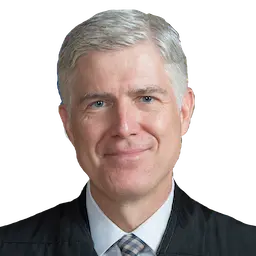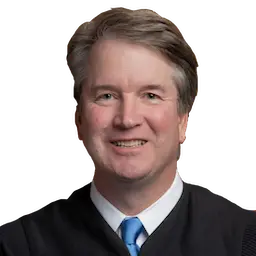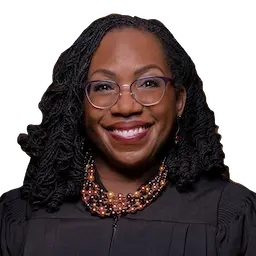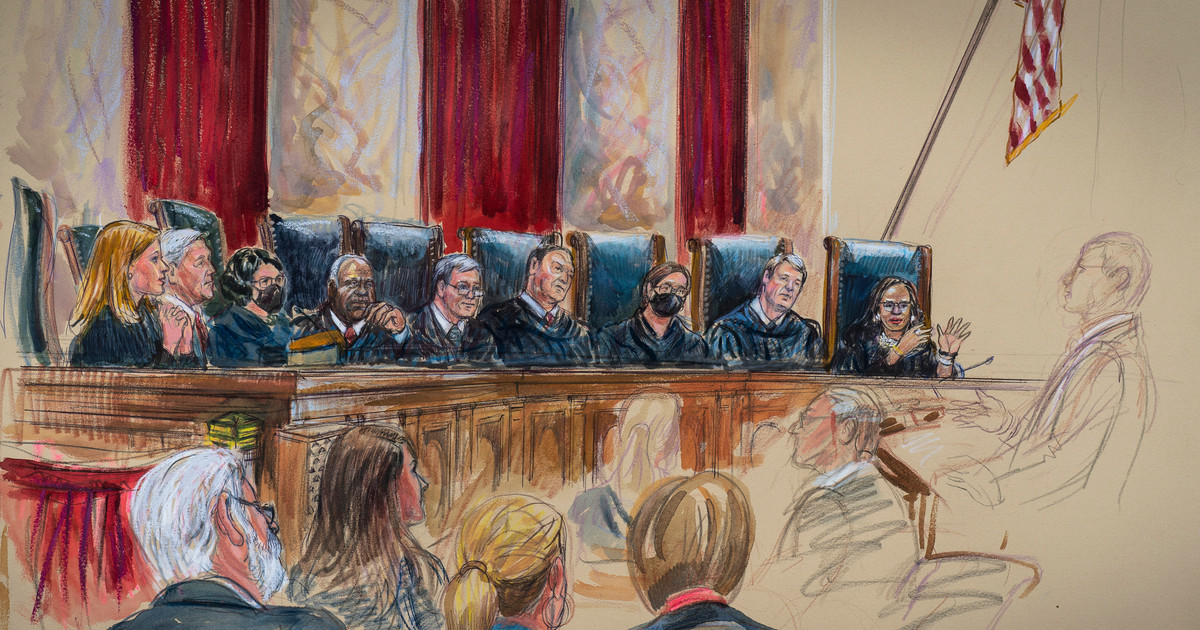ProPublica is a nonprofit newsroom that investigates abuses of power. Sign up to receive our biggest stories as soon as they’re published.
Last summer, the U.S. Supreme Court overturned the constitutional right to abortion established 50 years ago in Roe v. Wade, raising concerns about the future of other rights rooted in Supreme Court rulings. Although most rights are secured by statutes and regulations, others are guarantees extrapolated by the court from the often abstract language of the Constitution. Some of these are recent rights, like the right to carry a handgun in public. But many are longstanding, like the right to be read a Miranda warning by police before being interrogated, and trace their origins to the liberal majorities that presided on the court from the 1950s through the 1970s, an era often called the “rights revolution.” Because these rights were established by the court, the court alone gets to decide whether to preserve, shrink or unmake them.
To get a better sense of which rights may be at risk — in whole or in part — ProPublica scoured judicial opinions, academic articles and public remarks by sitting justices. Some justices, like Clarence Thomas, have had decadeslong careers and lengthy paper trails. By contrast, Ketanji Brown Jackson, the newest justice, has almost no prior record. We found dozens of rights that at least one sitting justice has questioned. Below, you can explore these rights and the objections levied against them. We include federal legislation that’s been introduced to protect a given right, as well as lawsuits active in lower courts that could become vehicles for the justices to revisit existing rights in the future.
The Most Questioned
With four or more justices questioning aspects of these rights, they’re the likeliest to be undone by the conservative bloc.
Right to sue federal officials for violating your rights
Between 1971 and 1980, the Supreme Court read into the Constitution an implicit right to sue federal officials for damages over violations of certain constitutional rights, which came to be called a Bivens claim. The court only ever sanctioned three Bivens claims: a Fourth Amendment lawsuit over the conduct of federal agents during an arrest, an employment lawsuit brought by a congressional staffer alleging gender discrimination and a case brought by a federal prisoner alleging inadequate care under the Eighth Amendment.
Key Cases: Bivens v. Six Unknown Named Agents of Federal Bureau of Narcotics (1971), Davis v. Passman (1979), Carlson v. Green (1980)
Read MoreRight to have police advise you of your rights
The Miranda warning, familiar to fans of police procedurals, is the product of the 1966 decision Miranda v. Arizona. To protect the Fifth Amendment’s right against self-incrimination, the Supreme Court held that, before they begin an interrogation, law enforcement officials must inform suspects that they have the right to remain silent and to have an attorney present.
Key Cases: Miranda v. Arizona (1966)
Read MoreRight to be free from warrantless police searches
In the 1960s, the Supreme Court broadened the protections of the Fourth Amendment, which forbids the government from conducting “unreasonable searches and seizures” and spells out what is required to obtain a warrant. According to the court, the amendment constrains state and municipal police officers, not just federal law enforcement. It generally requires police to get a warrant before searching places where a person has a “reasonable expectation of privacy.” And it prohibits the government from using evidence obtained by an illegal search — a doctrine called the “exclusionary rule.”
Key Cases: Mapp v. Ohio (1961), Katz v. United States (1967), Terry v. Ohio (1968)
Read More
Strong Opinions
With three justices noting disagreements with these rights, there’s no clear sense of how the current court might rule in a challenge.
Right to be free from grossly disproportionate punishment or sentences
The Eighth Amendment’s ban on cruel and unusual punishments implies what the court has called a “proportionality principle,” a restriction on sentences that are grossly disproportionate to the crime. An example is the death penalty for nonhomicide crimes.
Key Cases: Coker v. Georgia (1977), Solem v. Helm (1983), Kennedy v. Louisiana (2008)
Read MoreRight of minors to be free from extreme sentences
The Supreme Court has held that the Eighth Amendment’s ban on cruel and unusual punishments bars courts from sentencing juvenile offenders to certain punitive sanctions: the death penalty, life without parole for nonhomicide crimes and mandatory life without parole for any crime, including murder.
Key Cases: Roper v. Simmons (2005), Graham v. Florida (2010), Miller v. Alabama (2012)
Read MoreRight not to have hearsay used against you at trial
The Sixth Amendment secures for criminal defendants the opportunity to confront their accusers in court. The Supreme Court has interpreted the amendment to prohibit prosecutors from introducing hearsay at trial if it’s deemed “testimonial.” The court considers an out-of-court statement as “testimonial” hearsay when it was provided to government officials who primarily intend to use it in a later criminal prosecution. The distinction between what’s testimonial and what’s not is fuzzy. The court, for example, has held that hearsay provided during a police interrogation aimed at solving a crime counts as “testimonial” and therefore must be excluded. But a 911 call from a victim who had been beaten up moments earlier is not, because the victim provided the information to resolve an ongoing emergency, not to help solve a past crime.
Key Cases: Crawford v. Washington (2004), Davis v. Washington (2006)
Read MoreRight to be free from state-sponsored displays of religion
A line of Supreme Court precedent dating to the 1980s has interpreted the First Amendment’s ban on government establishment of religion — known as the establishment clause — to encompass a right to be free from certain state-sponsored displays of religious symbols and religious speech. The court has ruled that some religious statues on public land violate this right but that opening legislative sessions with a prayer generally does not.
Key Cases: Stone v. Graham (1980), Marsh v. Chambers (1983), Lynch v. Donnelly (1984)
Read MoreRight not to have one’s tax dollars fund religious activity
The justices have long read the First Amendment’s ban on state religion — commonly known as the establishment clause — to prohibit government funding of religious organizations if the money directly finances religious activity. This has always had to accommodate a countervailing First Amendment right: the right against religious discrimination by the government. In 2022, the Supreme Court upended the preexisting balance, ruling that a Maine tuition-assistance program for rural private school students couldn’t exclude religious schools.
Key Cases: Everson v. Board of Education (1947), Walz v. Tax Commission of New York (1970), Lemon v. Kurtzman (1971), Carson v. Makin (2022)
Read MoreRight to protections against defamation claims
In the nearly 60 years since the Supreme Court issued its opinion in New York Times Co. v. Sullivan, the justices have held that the First Amendment requires public figures or government officials who file defamation lawsuits to demonstrate that the defamatory statement was made with “actual malice” — that it was a lie or made with reckless disregard for the truth.
Key Cases: New York Times Co. v. Sullivan (1964), Curtis Publishing Co. v. Butts (1967)
Read MoreRight of the cognitively disabled not to be executed
The execution of people with severe cognitive disabilities, the justices have held, violates the Eighth Amendment’s injunction against cruel and unusual punishments.
Key Cases: Atkins v. Virginia (2002)
Read More
Some Dissent
With only one or two justices calling these rights into question, it’s unlikely the court will unravel them anytime soon. In fact, some rights favored by the conservative majority, such as the right of religious institutions to discriminate, are more likely to expand than contract.
Right to an effective lawyer in criminal cases
The Supreme Court has long construed the Sixth Amendment’s right to the assistance of counsel to encompass a right to the effective assistance of counsel — whether the defendant hired the lawyer or was represented by a state-appointed attorney.
Key Cases: Strickland v. Washington (1984)
Read MoreRight to state-appointed lawyer in criminal cases
The Supreme Court has interpreted the Sixth Amendment’s right to the assistance of counsel to mean that the state must appoint an attorney for a criminal defendant without the means to hire one. The right covers felony cases, misdemeanor cases that carry a prison sentence and a first appeal. It applies not only to trial but to a variety of critical pretrial proceedings, such as post-indictment police interrogations, post-indictment police lineups, psychiatric exams, arraignments and preliminary hearings.
Key Cases: Powell v. Alabama (1932), Johnson v. Zerbst (1938), Gideon v. Wainwright (1963), Douglas v. California (1963), Massiah v. United States (1964)
Read MoreRight to be free from prayer in public schools
For decades, the Supreme Court interpreted the First Amendment’s ban on government-established religion — what’s called the establishment clause — to prohibit prayer in public schools. In 2022, however, a majority of the justices reshaped the legal doctrine when it ruled that a coach’s prayer at high school football games didn’t violate the clause.
Key Cases: Engel v. Vitale (1962), School District v. Schempp (1963), Kennedy v. Bremerton School District (2022)
Read MoreRight of public-sector employees not to pay union fees
The Supreme Court’s 2018 decision in Janus v. AFSCME ruled that unions representing government employees can’t collect compulsory fees from nonmembers. These arrangements, the majority said, violate the First Amendment’s guarantee of free association and free speech.
Key Cases: Janus v. Am. Fed'n of State, Cnty., & Mun. Emps., Council 31 (2018)
Read MoreRight to near-unlimited political spending by individuals, corporations and labor unions
In a series of cases, starting with 2010’s Citizens United v. Federal Election Commission, the Supreme Court established an all-but-unlimited First Amendment right to political spending, based on its view that money is a form of speech. These cases have lifted prohibitions on independent expenditures by corporations and labor unions to support their preferred candidates and eliminated caps on the total amount a donor can give to candidates and political parties in a single election cycle.
Key Cases: Citizens United v. Federal Election Commission (2010), Arizona Free Enterprise Club's Freedom Club Pac v. Bennett (2011), McCutcheon v. Fed. Election Comm'n (2014)
Read MoreRight to keep guns at home for self-defense
In the 2008 case District of Columbia v. Heller, the Supreme Court held that the Second Amendment confers an individual right to own and keep guns in one’s home for self-defense.
Key Cases: District of Columbia v. Heller (2008), McDonald v. City of Chicago (2010)
Read MoreRight to carry a handgun in public
In 2022’s New York State Rifle & Pistol Association v. Bruen, the Supreme Court ruled, relying on historical examples, that the Second Amendment protected the right of law-abiding citizens to carry a handgun in public.
Key Cases: New York State Rifle & Pistol Association Inc. v. Bruen (2022)
Read MoreRight to same-sex marriage
The Supreme Court established a constitutional right to same-sex marriage in 2015’s Obergefell v. Hodges, a landmark decision by then-Justice Anthony Kennedy that drew sharply worded dissents from the four other conservative justices. Last year, Congress enacted the Respect for Marriage Act, which requires states to recognize a same-sex marriage granted in another state but, unlike Obergefell, stops short of ordering states to issue marriage licenses to same-sex couples.
Key Cases: Obergefell v. Hodges (2015)
Read MoreRight to vote without severe burdens
A law that makes voting harder violates the Constitution’s guarantee of equal protection, the Supreme Court has held, unless the government can show that the law serves a sufficiently important purpose. The justices, for example, have upheld a voter identification law as a valid means of preventing fraud and safeguarding voter confidence in election outcomes.
Key Cases: Anderson v. Celebrezze (1983), Burdick v. Takushi (1992)
Read MoreRight to public pretrial proceedings
The Supreme Court has held that the Sixth Amendment right to a criminal trial open to the public extends to two types of pretrial proceedings: jury selection and hearings on motions to suppress evidence.
Key Cases: Waller v. Georgia (1984), Presley v. Georgia (2010)
Read MoreRight to be free from certain methods of execution
The Supreme Court has interpreted the Eighth Amendment’s prohibition on cruel and unusual punishments to forbid methods of execution that needlessly subject condemned inmates to terror, pain or disgrace. Although the court has never invalidated a method of execution, it has recognized that some currently in use would run afoul of this right if administered differently, such as a lethal injection without first rendering the prisoner unconscious.
Key Cases: Wilkerson v. Utah (1878), Baze v. Rees (2008), Glossip v. Gross (2015)
Read MoreRight to be free from laws that risk chilling free speech
The First Amendment generally permits the government to regulate certain categories of speech, like obscenity or fraud. But the Supreme Court has also interpreted the amendment to prohibit laws that target those forms of speech if they’re written too loosely. The court’s concern is that such laws pose a high risk of chilling a lot of protected speech, such as political advocacy. The court has called this the “overbreadth doctrine.”
Key Cases: Thornhill v. Alabama (1940), Broadrick v. Oklahoma (1973)
Read MoreRight to be free from regulatory takings
The Fifth Amendment demands that the government provide compensation when it takes private property for public use. The Supreme Court has read that guarantee to extend to “regulatory takings” — when government regulation or land permitting is so burdensome it amounts to seizing the property outright.
Key Cases: Pennsylvania Coal Co. v. Mahon (1922), Penn Central Transportation Co. v. New York City (1978), Loretto v. Teleprompter Manhattan CATV Corp. (1982), Nollan v. California Coastal Commission (1987), Lucas v. South Carolina Coastal Council (1992), Dolan v. City of Tigard (1994), Lingle v. Chevron U. S. A. Inc. (2005)
Read MoreRight to procedural due process
The right to due process, enshrined in the Fifth and Fourteenth Amendments, applies to any government action that deprives a person of life, liberty or property, whether in a criminal prosecution or a civil decision. The Supreme Court has said there must be certain baseline procedural safeguards to noncriminal decisions. For instance, government officials have to provide notice explaining the basis for a decision to strip someone of welfare benefits, as well as the opportunity to challenge it before an impartial tribunal.
Key Cases: Den ex dem. Murray v. Hoboken Land & Improvement Co. (1855), Goldberg v. Kelly (1970), Mathews v. Eldridge (1976)
Read MoreRight to free education for undocumented immigrants
In the 1982 case Plyler v. Doe, the Supreme Court held that a state generally cannot deny a free public education to children based on their status as undocumented immigrants.
Key Cases: Plyler v. Doe (1982)
Read MoreRight to specificity in criminal law
To satisfy the Constitution’s guarantee of due process, the Supreme Court has long held that criminal statutes and other punitive laws must be specific enough to put the public on notice as to what conduct they require or forbid. Examples of laws the justices have struck down under this vagueness doctrine include broadly phrased anti-vagrancy laws and laws that turn on undefined terms, such as “gangster.”
Key Cases: Connally v. General Construction Co. (1926), Papachristou v. City of Jacksonville (1972)
Read MoreRight of prisoners to basic necessities
The Eighth Amendment’s cruel and unusual punishments clause, per the Supreme Court’s interpretation, grants prisoners the right to conditions of confinement that meet basic human necessities, such as adequate food, clothing, sanitation and medical care.
Key Cases: Estelle v. Gamble (1976), Hutto v. Finney (1978), Farmer v. Brennan (1994)
Read MoreRight to a representative jury pool
The justices have read the Sixth Amendment to grant criminal defendants a right to a jury selected from a pool that reflects a fair cross section of the local community.
Key Cases: Taylor v. Louisiana (1975), Duren v. Missouri (1979)
Read MoreRight of religious employers to discriminate
The First Amendment’s religion clauses, as the Supreme Court interprets them, free religious employers from anti-discrimination laws when they make employment decisions about “ministerial” positions — a doctrine the court has called the “ministerial exception.” For example, the justices have ruled that a Lutheran school may fire a religion teacher because of her disability without violating federal law. In 2020, the Supreme Court expanded the exception to include employees whose duties are largely secular and who are fired for largely nonreligious reasons.
Key Cases: Hosanna-Tabor Evangelical Lutheran Church & School v. Equal Employment Opportunity Commission (2012), Our Lady of Guadalupe Sch. v. Morrissey-Berru (2020)
Read MoreRight to equal protection under federal law
Although the Fourteenth Amendment bars state governments from denying any person — including noncitizens — equal protection of the law, the Constitution does not expressly extend this obligation to the federal government. The Supreme Court has nevertheless ruled that the equal protection clause applies to the federal government.
Key Cases: Bolling v. Sharpe (1954)
Read MoreRight to interstate travel
Since the 19th century, the Supreme Court has recognized the constitutional right of citizens of one state to travel unimpeded through other states. The core right to interstate travel has become a live question in the wake of Dobbs v. Jackson Women's Health Organization, which eliminated the federal right to abortion access, because legislatures are now seeking to enact laws penalizing travel across state lines to secure an abortion.
Key Cases: Crandall v. Nevada (1867), Edwards v. California (1941), Shapiro v. Thompson (1969), Saenz v. Roe (1999)
Read MoreRight to contraception
The Supreme Court has held that states generally cannot bar or place serious burdens on the public’s access to contraceptives. The right was established pursuant to a legal doctrine called substantive due process. According to this doctrine, the Constitution’s due process clauses generally bar the government from infringing on rights the justices have deemed “fundamental,” even though the text of the national charter does not mention them. Substantive due process underpins numerous other rights, like the bygone federal right to abortion access and the right to same-sex intimacy.
Key Cases: Griswold v. Connecticut (1965), Eisenstadt v. Baird (1972), Carey v. Population Services International (1977)
Read MoreRight to same-sex intimacy
The right to same-sex intimacy was established in 2003, when the Supreme Court struck down a Texas law criminalizing sodomy. The right is rooted in a doctrine the court calls substantive due process, which holds that the Constitution’s due process clauses protect certain rights that the document does not expressly mention but that the court has recognized as “fundamental.” Substantive due process forms the basis for many other constitutional rights, including the right to contraception and the onetime federal right to abortion access.
Key Cases: Lawrence v. Texas (2003)
Read MoreRight to sex equality in public education
In 1996, the Supreme Court ruled that the Fourteenth Amendment’s equal protection clause generally bars states from running single-sex schools, holding that the all-male Virginia Military Institute had to admit female applicants.
Key Cases: United States v. Virginia (1996)
Read MoreRight to equal representation
To prevent a state from diluting its citizenry’s voting power, legislative districts must contain roughly equal populations — an interpretation of the Fourteenth Amendment’s equal protection clause the Supreme Court has called the "one person, one vote" principle.
Key Cases: Baker v. Carr (1962), Gray v. Sanders (1963), Reynolds v. Sims (1964), Wesberry v. Sanders (1964)
Read MoreRight of prospective jurors to be free from discrimination
The landmark decision in 1986’s Batson v. Kentucky and later cases drawing on it give prospective jurors in criminal and civil cases an equal protection right not to be excluded from a jury on the basis of race or sex. Although a juror can sue over a violation of this right, it’s far more common for criminal defendants to raise this issue in an effort to secure a new trial.
Key Cases: Batson v. Kentucky (1986), J. E. B. v. Alabama ex rel. T. B. (1994)
Read MoreRight to have a jury decide certain factual questions in criminal sentencing
To secure a criminal conviction, prosecutors generally must convince a jury beyond a reasonable doubt that the defendant is guilty of the charged crimes. In 2000, the Supreme Court began expanding this right to apply to a range of sentencing decisions. For instance, some criminal laws, such as hate crime statutes, raise the maximum sentence if prosecutors can prove that certain criteria are met — a judgment that the court has held that only a jury can make.
Key Cases: Apprendi v. New Jersey (2000)
Read MoreRight to discovery of defendant-friendly evidence
Under longstanding Supreme Court precedent, criminal defendants have a right to any material evidence in the government’s possession that casts doubt on the prosecution’s case — what’s often called, after two foundational rulings, Brady and Giglio material. Defendants are entitled to such evidence whether it suggests the defendant is innocent or could be used to impeach government witnesses.
Key Cases: Brady v. Maryland (1963), Giglio v. United States (1972)
Read MoreRight of public school students to speech and privacy
The Supreme Court has recognized that students do not surrender their constitutional rights when they arrive at a public school. But it has also ruled that their rights are limited by the need of school officials to maintain a productive learning environment. For instance, students retain a right to free speech and expression on campus as long as their conduct doesn’t disrupt school activities. Similarly, students still hold privacy rights on campus. However, school officials don’t require a warrant or probable cause to search or seize their property; they must only have a reasonable suspicion that a search will turn up evidence of a violation of the law or of school rules.
Key Cases: Tinker v. Des Moines Independent Community School District (1969), New Jersey v. T. L. O. (1985)
Read More
About the Data
The data for this tool includes 39 rights extrapolated by the Supreme Court from the language of the U.S. Constitution.
The highlighted rights are limited to ones for which ProPublica identified at least one instance where a sitting justice has advocated for overturning or reconsidering the right. To identify these, reporters reviewed hundreds of judicial opinions, academic articles and public remarks authored or made by the justices.
For each right, ProPublica searched a variety of sources, including the legal research database Westlaw, to identify lower federal court cases that challenge the right. These cases do not necessarily represent the complete universe of litigation involving each right; they do not, for example, include cases filed in state or local courts that could eventually reach the Supreme Court.
To identify legislation related to each right, reporters searched for key terms pertaining to each right in congressional databases, like ProPublica’s Represent and Congress’ own repository of federal bills, congress.gov.
Data sources include the Harvard Law School Library’s Caselaw Access Project, the Free Law Project and ProPublica’s Represent.
Additional design by Ash Ngu. Guns icon from the Noun Project.
